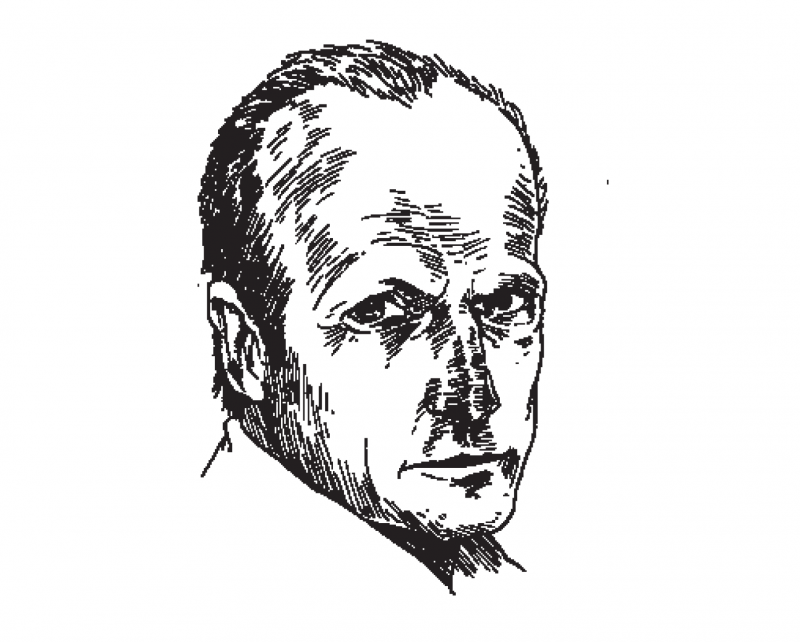In the most direct of ways, Jim Crace’s last four books have taken on, in order, God (Quarantine, 1997), death ( Being Dead, 1999), food ( The Devil’s Larder, 2001), and sex ( Genesis, forthcoming in 2003). Of course Quarantine, which is about Christ’s forty days in the wilderness (and which won him a Whitbread prize and made the shortlist for the Booker), is also about food and sex, or hunger and desire anyway, and Being Dead, which tracks in excruciatingly patient detail the decomposition of a murdered couple, is too—though the grub is the sort that worms prefer. The Devil’s Larder, a collection of sixty-four very short stories about eating, returns that act to its sensuous, life-giving and death-dealing roots, and Genesis, a novel about a man who impregnates every woman with whom he sleeps, unfashionably reunites sex with its fusty old pal procreation.
Crace does not shy away from the Big subjects. Without any ironic cover to hide behind, he stakes his ground around them and fills the enclosed territory with the most impossibly and perfectly detailed worlds cousins if not siblings of the fully imagined universe he laid out in his first novel, Continent, another Whitbread winner set on a familiar but distinct “seventh and shabby continent” of Crace’s own devising.
On the phone at least, Jim Crace has none of the sober and high-minded laconism you might expect from reading his prose. He’s a gloriously easy interview—it doesn’t take much prodding to get him going, and the words just topple on out in a loose North London accent. Crace is casually and joyously garrulous, self-mocking, almost boyishly ebullient. He spoke to me from his home in Birmingham, where he claims to lead “the most uninteresting biographical life of any writer.”
—Ben Ehrenreich
*
THE BELIEVER: Let me ask you a biographical question. You were forty when your first book, Continent, was published. Were you writing before that?
JIM CRACE: I was a general freelance journalist for the color magazines, the Sunday supplements, first for the Sunday Telegraph and then for the Sunday Times. I was just a jobbing, reliable journalist. I had a good living and I had a reasonable reputation because I could turn my mind to pretty well everything, but I was a very undistinguished journalist, truth be told. No one thought that I had a particular tone of voice. Nobody thought that I was making any new waves—it was just that I was very reliable and my prose was trustworthy but really nothing special. But I did...
You have reached your article limit
Sign up for a digital subscription and continue reading all new issues, plus our entire archives, for just $1.50/month.
Already a subscriber? Sign in





